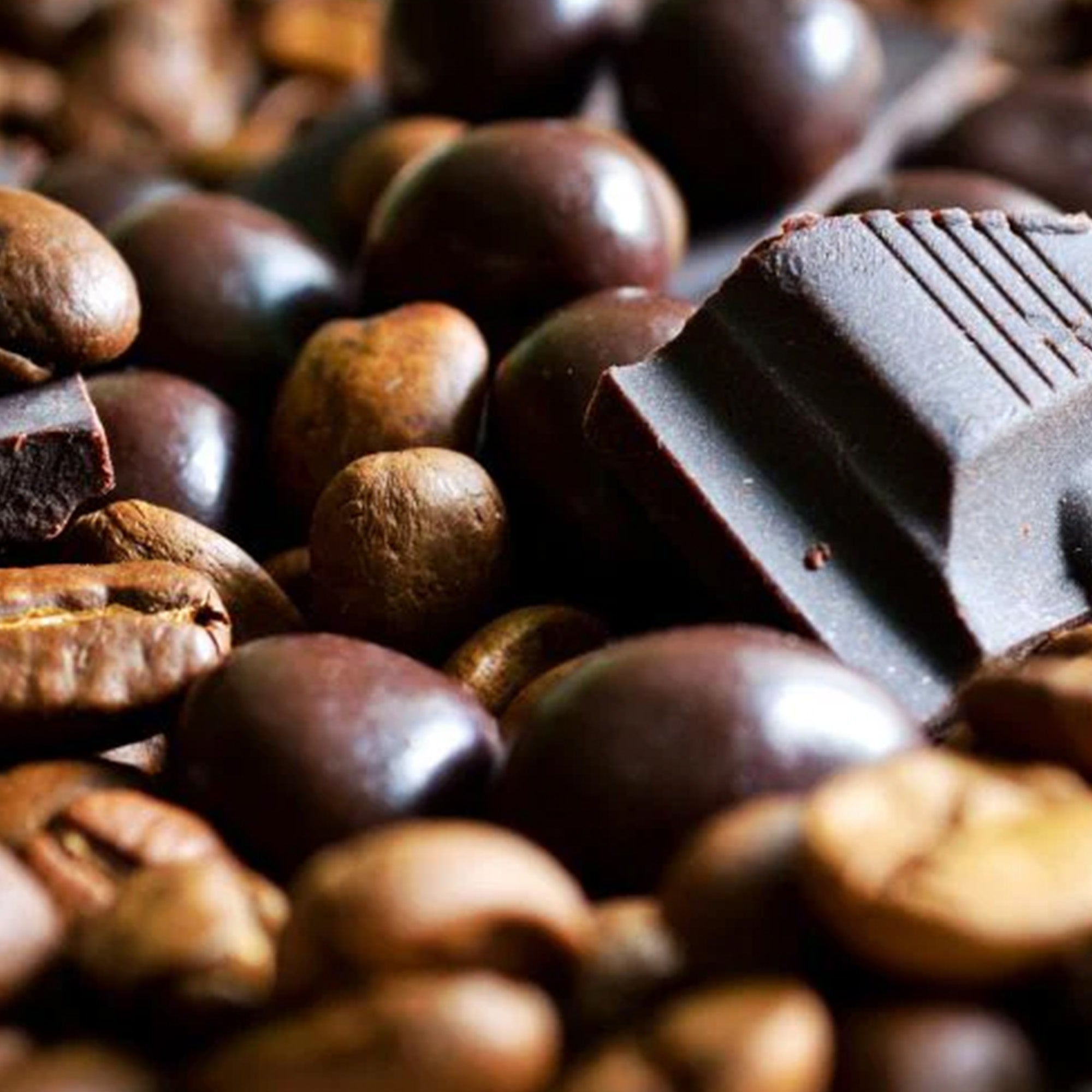I. Introduction
In our modern, fast-paced world, the pursuit of happiness and inner peace often feels like an uphill battle. We seek solutions in external circumstances, therapy, or even medication, yet sometimes overlook a profound internal influence: the intricate connection between our gut and our mind. Emerging science is increasingly revealing that a happy gut often translates to a happy mind, particularly through the powerful role of probiotics.
For too long, the gut was primarily viewed as a digestive organ, responsible for breaking down food and absorbing nutrients. However, we now understand it as a complex ecosystem, a “second brain” teeming with trillions of microorganisms that profoundly influence our mood, stress response, cognitive function, and overall mental well-being. This bidirectional communication system, known as the gut-brain axis, is a critical pathway for understanding and enhancing our relaxation.
At the heart of this connection lies the gut microbiome, and within it, the beneficial bacteria we call probiotics. These microscopic allies are not just vital for digestion; they are active participants in shaping our mental landscape, influencing neurotransmitter production, modulating inflammation, and even impacting our stress resilience. When combined with the nurturing properties of cacao and the foundational support of prebiotics, a probiotic-rich drink becomes a potent elixir for cultivating calm and fostering a more relaxed state of mind.
This blog post will delve deep into the fascinating probiotic-relaxation connection. We will explore how probiotics influence the gut-brain axis, the scientific evidence supporting their role in reducing anxiety and stress, and how they work synergistically with cacao and prebiotics to create a holistic pathway to a happier, calmer you. Prepare to discover how nurturing your gut can unlock a profound sense of peace and well-being.
II. The Gut-Brain Axis: A Deeper Look at Mental Well-being
To truly appreciate the probiotic-relaxation connection, we must first understand the sophisticated communication network that is the gut-brain axis (GBA). This is not a one-way street; it’s a constant, intricate dialogue that profoundly influences our mental and emotional states.
A. The Bidirectional Communication System
The GBA is a complex system of communication that links the central nervous system (brain and spinal cord) with the enteric nervous system (ENS), a vast network of neurons embedded in the walls of the gastrointestinal tract. This dialogue occurs through multiple pathways:
The Vagus Nerve: This is the primary neural highway connecting the brain and the gut. It transmits signals in both directions, allowing the brain to influence gut function and, crucially, allowing the gut to send signals to the brain that impact mood, stress, and cognition.
Neurotransmitters: Many neurotransmitters, chemical messengers that regulate mood and brain function, are produced in the gut. For example, an astonishing 90% of the body’s serotonin, often called the “happy chemical,” is synthesized in the gut. The gut microbiota plays a direct role in their production and regulation.
Hormones: The gut produces various hormones that can influence brain function, appetite, and emotional responses.
Immune System: The gut houses approximately 70-80% of the body’s immune cells. The gut microbiota constantly interacts with the immune system, and inflammation in the gut can trigger systemic inflammation, which can cross the blood-brain barrier and contribute to neuroinflammation, impacting mood and cognitive function.
Short-Chain Fatty Acids (SCFAs): These are metabolic byproducts of bacterial fermentation of dietary fibers. SCFAs like butyrate, propionate, and acetate can influence brain function, reduce inflammation, and even cross the blood-brain barrier to exert direct effects on the brain.
B. The Gut Microbiome: A Key Player in Mental Health
At the core of the GBA’s influence on mental well-being is the gut microbiome – the trillions of bacteria, viruses, fungi, and other microorganisms that inhabit our digestive tract. This diverse community is increasingly recognized as a crucial determinant of our mental health.
Diversity and Balance: A healthy gut microbiome is characterized by a high diversity of beneficial species and a balanced ratio between different types of bacteria. This diversity contributes to a resilient ecosystem capable of performing a wide range of functions.
Dysbiosis and Mental Health: When the gut microbiome becomes imbalanced (dysbiosis), with an overgrowth of harmful bacteria or a reduction in beneficial ones, it can have profound negative effects on mental health:
Increased Inflammation: Dysbiosis often leads to chronic low-grade inflammation in the gut, which can then spread systemically and to the brain, contributing to anxiety, depression, and cognitive decline.
Altered Neurotransmitter Production: An imbalanced microbiome may produce fewer beneficial neurotransmitters or more compounds that negatively impact brain function.
Compromised Gut Barrier: Dysbiosis can weaken the gut lining, leading to increased permeability (“leaky gut”). This allows toxins and inflammatory molecules to enter the bloodstream, further exacerbating inflammation and impacting the brain.
Understanding the profound influence of the gut microbiome on the brain sets the stage for appreciating how probiotics, by restoring balance and promoting beneficial functions, can be powerful allies in our quest for relaxation and mental well-being.
III. Probiotics: Your Allies for a Calm Mind
Probiotics are live microorganisms that, when administered in adequate amounts, confer a health benefit on the host. They are not just about digestion; they are powerful modulators of the gut-brain axis, directly influencing our mood, stress response, and overall sense of calm.
A. How Probiotics Influence the Gut-Brain Axis
Probiotics exert their calming effects through several key mechanisms:
Neurotransmitter Production: Certain probiotic strains, particularly those from the Lactobacillus and Bifidobacterium genera, are capable of producing or influencing the production of key neurotransmitters in the gut. For instance:
GABA (Gamma-Aminobutyric Acid): This is the primary inhibitory neurotransmitter in the central nervous system, meaning it calms nerve activity. Some probiotics can produce GABA, directly contributing to reduced anxiety and a more relaxed state.
Serotonin: While 90% of serotonin is produced in the gut, its synthesis is influenced by the gut microbiome. Probiotics can support the pathways that lead to serotonin production, which is crucial for mood regulation, sleep, and feelings of well-being.
Modulating the HPA Axis: The hypothalamic-pituitary-adrenal (HPA) axis is the body’s central stress response system. Chronic stress can lead to an overactive HPA axis and elevated cortisol levels. Certain probiotics have been shown to help regulate the HPA axis, reducing the physiological response to stress and promoting a more balanced cortisol profile.
Reducing Inflammation: Probiotics contribute to a healthy gut barrier, reducing permeability and preventing inflammatory compounds from entering the bloodstream. They also produce anti-inflammatory compounds and modulate the immune system, thereby reducing systemic and neuroinflammation that can negatively impact mood and cognitive function.
Producing Short-Chain Fatty Acids (SCFAs): As they ferment dietary fibers, probiotics produce SCFAs like butyrate. Butyrate not only nourishes gut cells but also has anti-inflammatory effects and can influence brain function, contributing to overall mental well-being.
B. Specific Probiotic Strains and Their Anxiolytic Effects
Research into specific probiotic strains and their impact on mental health is a rapidly growing field. While more studies are needed, several strains have shown promising anxiolytic (anxiety-reducing) and mood-enhancing effects:
Lactobacillus helveticus R0052 and Bifidobacterium longum R0175: This combination has been extensively studied and shown to reduce psychological distress, anxiety, and cortisol levels in human trials.
Lactobacillus plantarum PS128: Research suggests this strain can improve mood, reduce anxiety, and alleviate symptoms of depression by increasing dopamine and serotonin levels in the brain.
Bifidobacterium bifidum: This strain has been linked to improved mood and reduced stress responses.
It’s important to note that the effects can be strain-specific, meaning not all probiotics will have the same impact on mental health. A well-formulated probiotic blend for relaxation will often include strains specifically chosen for their gut-brain axis benefits.
By directly influencing neurotransmitter production, modulating the stress response, and reducing inflammation, probiotics emerge as powerful allies in our quest for a calm mind. They work at a fundamental level to restore balance within our internal ecosystem, paving the way for deeper relaxation and improved mental well-being.
IV. Clinical Evidence: Probiotics and Anxiety/Stress Reduction
The concept of using probiotics for mental well-being, often termed “psychobiotics,” is gaining significant traction in the scientific community. A growing body of clinical evidence, from both animal and human studies, supports the role of specific probiotic strains in alleviating symptoms of anxiety and stress.
A. Human Clinical Trials: Promising Results
Numerous human clinical trials have investigated the impact of probiotic supplementation on mood and stress-related parameters. Here are some key findings:
Reduced Anxiety Symptoms: Several studies have demonstrated that supplementation with certain probiotic strains can lead to a significant reduction in self-reported anxiety symptoms in healthy individuals and those with diagnosed anxiety disorders. For example, a meta-analysis of multiple studies found that probiotic supplementation significantly reduced anxiety levels.
Improved Mood and Reduced Depression: Beyond anxiety, probiotics have shown potential in improving overall mood and reducing symptoms of depression. This is often linked to their ability to influence serotonin and other mood-regulating neurotransmitters.
Lowered Cortisol Levels: Some research indicates that specific probiotics can help to lower circulating levels of cortisol, the primary stress hormone. This suggests a direct impact on the HPA axis, helping the body to better manage and recover from stress.
Enhanced Cognitive Function: While the primary focus is on mood, some studies have also noted improvements in cognitive function, such as memory and attention, which can be negatively impacted by chronic stress and anxiety.
Impact on Stress-Induced Gut Symptoms: Beyond mental health, probiotics can also alleviate physical symptoms of stress, such as irritable bowel syndrome (IBS) symptoms, which often co-occur with anxiety and depression.
B. Mechanisms Observed in Clinical Settings
The observed clinical benefits are attributed to the mechanisms discussed earlier, which are actively being researched:
Modulation of the Gut Microbiome Composition: Probiotics introduce beneficial bacteria, shifting the overall balance of the microbiome towards a healthier state. This can lead to increased diversity and a reduction in pathogenic bacteria.
Restoration of Gut Barrier Integrity: By strengthening the gut lining, probiotics reduce “leaky gut,” thereby decreasing the passage of inflammatory compounds into the bloodstream and brain.
Anti-inflammatory Effects: Probiotics produce anti-inflammatory molecules and modulate immune responses, reducing systemic inflammation that contributes to mood disorders.
Direct Neurotransmitter Influence: Evidence suggests that probiotics can directly produce or influence the availability of neurotransmitters like GABA and serotonin, which are crucial for mental well-being.
Vagus Nerve Activation: Some studies propose that probiotics can influence the vagus nerve, sending calming signals from the gut to the brain.
While the field of psychobiotics is still evolving, the consistent findings across numerous studies provide compelling evidence for the role of probiotics in supporting mental health and promoting relaxation. This makes them an invaluable component of any holistic strategy aimed at cultivating a calm and happy mind.
V. The Role of Cacao and Prebiotics in Enhancing Probiotic Action
While probiotics are powerful on their own, their efficacy is significantly amplified when combined with cacao and prebiotics. This creates a synergistic ecosystem within the gut, optimizing the environment for beneficial bacteria to thrive and exert their full range of calming effects.
A. Cacao: The Natural Prebiotic and Probiotic Protector
Cacao plays a dual role in enhancing probiotic action:
Natural Prebiotic: As discussed in previous posts, the polyphenols in cacao act as a natural prebiotic. They are not digested in the upper GI tract but travel to the colon, where they are fermented by beneficial bacteria, including many probiotic strains. This provides a direct food source for probiotics, encouraging their growth and activity.
Protective Matrix: Cacao can also act as a protective matrix for probiotics. Its rich fat content and antioxidant profile may help shield delicate probiotic strains from the harsh acidic environment of the stomach, increasing their survival rate as they travel to the intestines where they can colonize and exert their benefits.
Anti-inflammatory Support: Cacao’s anti-inflammatory properties help to reduce overall gut inflammation, creating a more hospitable environment for probiotics to establish themselves and function optimally. Inflammation can be detrimental to probiotic survival and efficacy.
B. Prebiotics: The Essential Fuel for Probiotic Flourishing
Prebiotics are the non-negotiable partners for probiotics. They are the specialized dietary fibers that selectively feed beneficial gut bacteria, ensuring that probiotics have the necessary fuel to grow, multiply, and produce their beneficial metabolites.
Selective Nourishment: Unlike general dietary fiber, prebiotics are specifically fermented by beneficial bacteria (like Lactobacillus and Bifidobacterium species), giving these strains a competitive advantage over less desirable bacteria.
Increased SCFA Production: When probiotics ferment prebiotics, they produce a greater quantity of beneficial short-chain fatty acids (SCFAs). These SCFAs not only nourish the gut lining but also have systemic effects, including anti-inflammatory properties and direct influence on brain function, further contributing to relaxation.
Enhanced Colonization: By providing a rich food source, prebiotics help probiotics to colonize the gut more effectively and maintain their presence, leading to more sustained benefits.
C. The Synbiotic Advantage: Cacao + Prebiotics + Probiotics
The combination of cacao, prebiotics, and probiotics creates a powerful “synbiotic” effect. A synbiotic is a mixture comprising live microorganisms (probiotics) and substrate(s) selectively utilized by host microorganisms (prebiotics) that confers a health benefit on the host.
In this context:
Cacao (Prebiotic Source) + Added Prebiotics: Provides a diverse range of fermentable fibers, ensuring a broad spectrum of beneficial bacteria are nourished.
Probiotics: The live beneficial strains are introduced into an environment primed for their success.
This synergistic blend ensures that the probiotics are not just surviving but thriving, allowing them to exert their maximum potential in influencing the gut-brain axis, reducing stress, and promoting a happy, calm mind. It’s a holistic approach that leverages the best of nature and science to optimize your internal ecosystem for profound well-being.
VI. Incorporating Probiotics for a Happier, Calmer You
Understanding the profound connection between probiotics and mental well-being is the first step; the next is to seamlessly integrate them into your daily routine. A well-formulated cacao adaptogen drink with prebiotics and probiotics offers a convenient and delicious way to nurture your gut-brain axis and cultivate a happier, calmer you.
A. The Convenience of a Cacao Adaptogen Drink
While fermented foods like yogurt, kimchi, and sauerkraut are excellent sources of probiotics, a specialized drink offers unique advantages:
Targeted Strains: Reputable cacao adaptogen drinks are formulated with specific, research-backed probiotic strains known for their gut-brain benefits, ensuring you get the right kind of support.
Consistent Dosing: It provides a precise and consistent dose of probiotics and prebiotics, which can be challenging to achieve through diet alone.
Palatability: The delicious taste of cacao makes daily consumption enjoyable, increasing adherence to your wellness routine.
Synergistic Blend: The drink combines probiotics with their essential fuel (prebiotics) and other calming ingredients (cacao, adaptogens), maximizing their collective impact.
B. Tips for Optimal Probiotic Benefits
To maximize the benefits of your probiotic-rich cacao adaptogen drink, consider these tips:
Consistency is Key: Probiotics need to be consumed regularly to maintain their presence and effects in the gut. Make your drink a daily ritual.
Timing: While you can enjoy it anytime, consuming it consistently at a particular time (e.g., morning or evening) can help establish a routine. Some prefer it in the morning to set a positive tone, while others find it calming in the evening.
Storage: Follow storage instructions carefully to ensure the viability of the live probiotic cultures.
Pair with a Healthy Lifestyle: Probiotics work best as part of a holistic approach to health. Complement your drink with a balanced diet rich in fiber (to further feed your gut microbes), adequate hydration, regular exercise, and stress-reducing practices like mindfulness or meditation.
Listen to Your Body: Pay attention to how you feel. Notice improvements in mood, digestion, sleep, and overall sense of calm. This positive feedback will reinforce your commitment to the routine.
By embracing a probiotic-rich cacao adaptogen drink, you are making a conscious choice to invest in your gut health, which in turn, is an investment in your mental well-being. It’s a delicious and effective way to cultivate a happier gut and, consequently, a happier, calmer mind.
VII. Conclusion
The intricate dance between our gut and our brain is one of the most exciting frontiers in health and wellness. We’ve explored the profound truth that a happy gut is indeed a gateway to a happy mind, with probiotics emerging as key players in this transformative connection.
We’ve delved into the mechanisms by which probiotics influence the gut-brain axis, from their role in neurotransmitter production and HPA axis modulation to their powerful anti-inflammatory effects. The growing body of clinical evidence provides compelling support for their ability to reduce anxiety, improve mood, and enhance overall mental well-being.
Crucially, we’ve highlighted the synergistic power of combining probiotics with cacao and prebiotics. Cacao, with its natural prebiotic properties and protective compounds, creates an ideal environment for probiotics to thrive. Prebiotics, as their essential fuel, ensure their flourishing and maximize their beneficial output, including vital short-chain fatty acids.
Incorporating a well-formulated cacao adaptogen drink, rich in prebiotics and probiotics, is a delicious and convenient way to nurture this vital internal ecosystem. It’s a daily ritual that transcends mere consumption, becoming a powerful act of self-care that directly supports your mental and emotional resilience.
Embrace the wisdom of the gut-brain connection. Choose to nourish your internal world with the power of probiotics, complemented by cacao and prebiotics. Your journey to a calmer, happier, and more balanced self begins with each mindful sip, transforming your gut into a source of profound peace and well-being.
Read more

I. Introduction In our relentless pursuit of productivity and alertness, many of us have become tethered to caffeine. The morning coffee, the afternoon energy drink – these have become indispensabl...

I. Introduction In our quest for inner peace and a calm mind, we often focus on practices like meditation, yoga, or stress-reduction techniques. While these are undoubtedly valuable, a growing bod...
